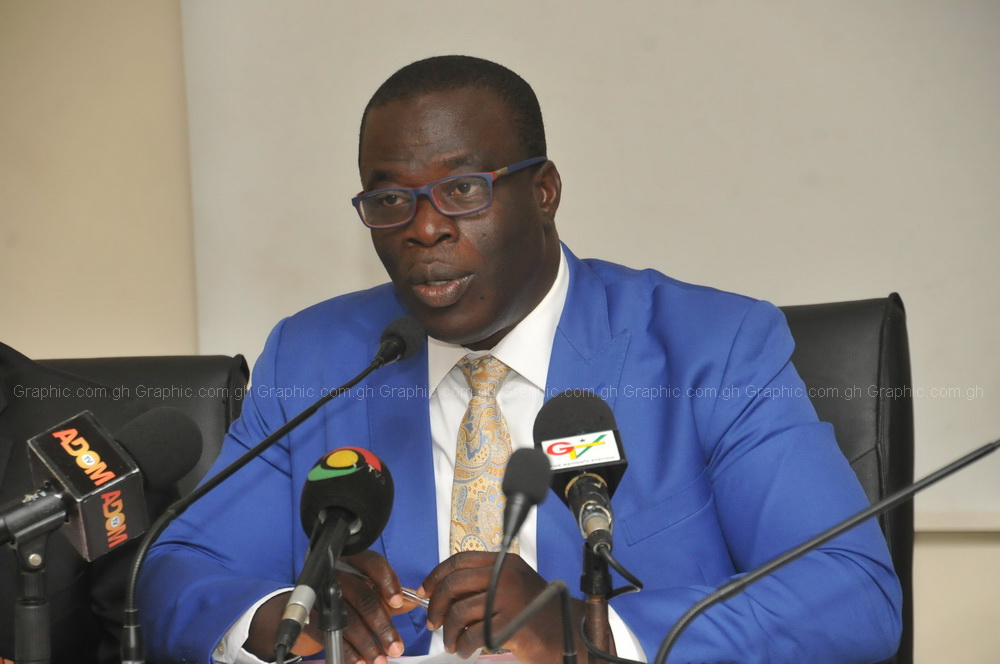
Base pay up for public workers
The Minister of Employment and Labour Relations, Mr Ignatius Baffour Awuah, has announced that public sector workers will this year receive a seven per cent salary increment, three per cent more than what was paid in 2021.
According to the minister, the increment was to help cushion workers from the impact of the coronavirus (COVID-19) pandemic which rages on not only in Ghana, but the world over.
The announcement was made last Tuesday when Mr Baffour Awuah addressed the Sixth Quadrennial National Conference of the Ghana National Association of Teachers (GNAT) taking place in Kumasi.
This is in fulfilment of an agreement reached last year by the Public Services Joint Standing Negotiating Committee (PSJSNC) that this year’s base pay for public sector workers would see a seven per cent increment.
This means that if an employee receives GH¢1,000, he would now be receiving GH¢70 as top-up.
Advertisement
With the announcement, the increment is expected to take effect at the end of this month.
Agreement
In July 2021, after agitations for pay increment, the government announced a four per cent increase in the base pay for public sector workers.
That followed negotiations by the PSJSNC which was made up of the government, organised labour and employers.
While agreeing on the four per cent increment, the committee at that negotiation also agreed to a further seven per cent increment in 2022.
Organised labour had proposed 15 per cent rise for 2021 and 2022, and tabled 10 per cent as its final proposal.
However, government and employers insisted they could only offer four and six per cent respectively as the impact of COVID-19 had made it impossible to go beyond the figures proposed.
At the 2021 negotiation, Mr Baffour Awuah, who led government’s team, said an attempt to get more than its tabled offer, could force it to retrench workers, a situation the government wanted to avoid.
No comments from organised labour
Following the announcement yesterday, the Daily Graphic tried to get organised labour’s reaction but both the Trades Union Congress (TUC) and the Industrial Commercial Workers Union (ICU) declined to comment, explaining that they would meet before issuing a statement.
The Ghana Federation of Labour (GFL) which last October called for an upward review of the pay base, said it was disappointed by the increment because it had not reflected the challenging realities of a time when the cost of living had gone up so high.
The General Secretary of the GFL, Mr Abraham Koomson, said “though it may have been an agreement, the realities on the ground are different and there is the need for the Tripartite Committee to meet to review the decision.
“Last October, at a capacity-building workshop for leaders of worker unions affiliated to the GFL, we called on the Trades Union Congress (TUC) and public sector unions to take immediate steps to re-engage the government to review the salary adjustments for 2021 and 2022.
“I think that call is still relevant,” Mr Koomson stressed.
Previous increment
Since the Fair Wages and Salaries Commission began the PSJSNC in 2010, the increment in base pay for public sector workers has kept declining.
In 2011, the increment was 20 per cent and that was considered the highest.
Subsequently, the numbers began declining, as in 2012 an 18 per cent increment was given and that reduced to 10 per cent in 2013.
In 2014, there was no increment but rather, the tripartite agreed to a 10 per cent offer of cost of living allowance (COLA) to cushion workers but an increment of 15 per cent was agreed on in 2015.
In the subsequent years, the agreed increment was 2016 (10 per cent), 2017 (12.5 per cent ) and 2018 (11 per cent).
A 10 per cent increment was offered in both 2019 and 2020.
Minimum wages
Meanwhile, the minimum wage for 2022 has already been determined following the negotiations of the National Tripartite Committee (NTC) in 2020.
The negotiation, which was concluded on June 3, 2020, for 2021 and 2022, agreed to a six per cent increment in the National Daily Minimum Wage to GH¢12.53, from the 2020 figure of GH¢11.82.
While the National Daily Minimum Wage rate for 2021 came into effect from June 4, 2021, that for 2022 takes effect on January 1, 2022.
The determination of the national minimum wage is in accordance with Section 113 (1) (a) of the Labour Act, 2003 (Act 651).
At the end of the meeting, it was also concluded that for the year 2022, the National Daily Minimum Wage would be pegged at ¢13.53, an 8 per cent increment on the 2021 figure.
“In determining the new rates, the NTC took into account the impact of the COVID-19 pandemic on the national economy, cost of living, sustainability of businesses and the desirability of attaining high level of employment,” it stated.
